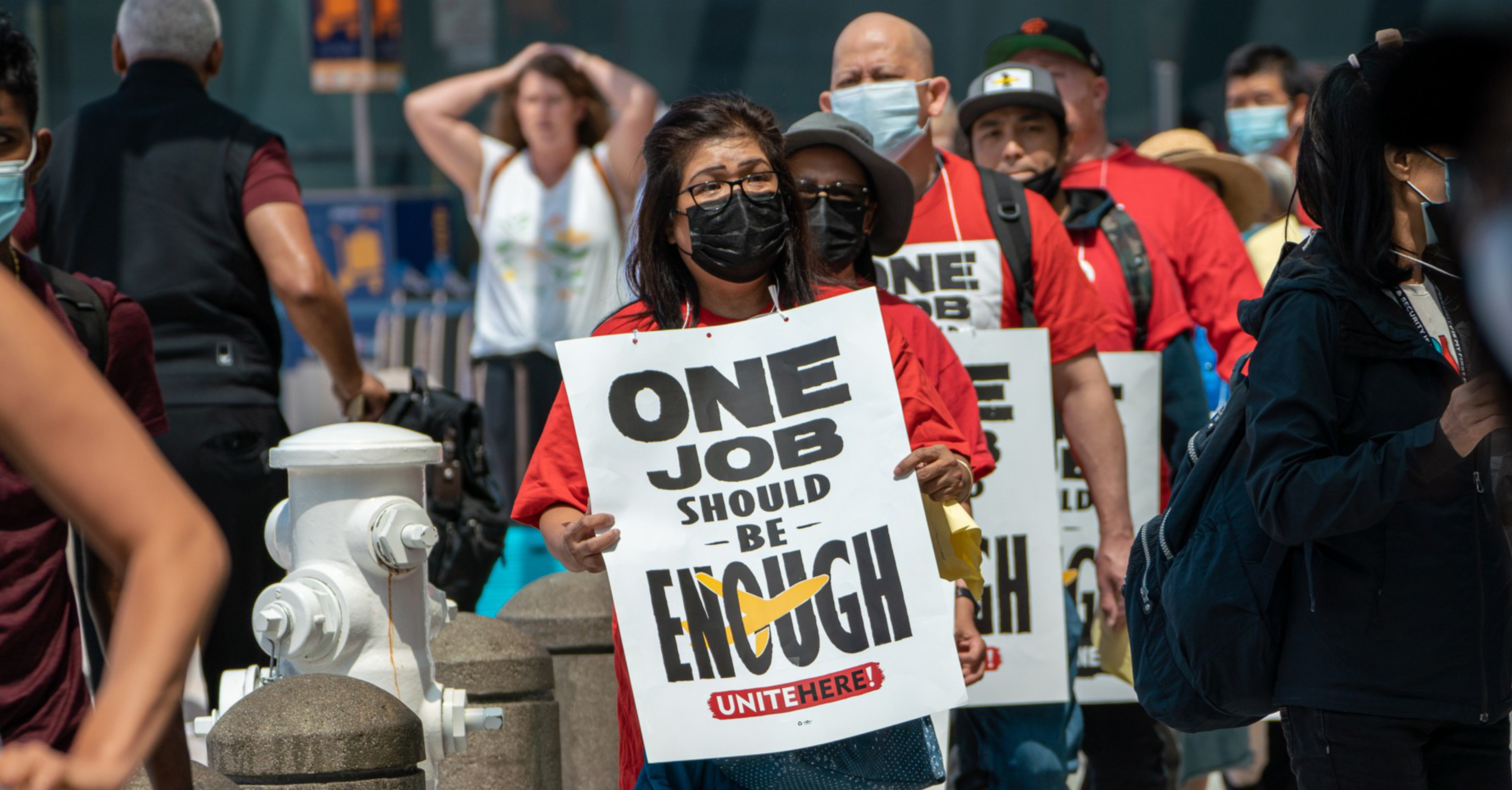In progressive San Francisco, you can count on organized labor to routinely achieve political wins. But this year was more of a mixed bag for unions, with two labor-endorsed supervisor candidates losing their races along with some consequential ballot questions.
The labor losses coincide with a restless electorate that’s increasingly fed up with local government: San Francisco voters have recalled four elected officials this year, tossed our an incumbent supervisor and elected a tougher-on-crime district attorney for a full term.
So is this another bellwether of the city’s changing politics, or just a bump in the road?
“I think it’s a bump. On everyday issues like housing and affordability, I believe voters still trust labor,” Kim Tavaglione, executive director of the San Francisco Labor Council, told The Standard.
Labor-endorsed candidates that lost races included Supervisor Gordon Mar and Honey Mahogany, both candidates for the Board of Supervisors. Labor was also on the losing side of the car-free JFK question, and while labor-endorsed candidates won City College Board races, they lost on a proposed special tax to generate funds for City College.

San Francisco is a labor town. Union organizing and labor struggles—from the Gold Rush era, to Bloody Thursday in 1934, to Janitors for Justice in the present day—have defined the city’s political history. Unions wield significant political power in both the city and the region.
Local Democrats, the only kind of politicians that win elections here, eagerly seek out the endorsement of unions and their political umbrella groups, like the San Francisco Labor Council and Building and Construction Trades Council.
Just last year, unions won significant victories over hazard pay for essential workers (opens in new tab) during the height of the Covid pandemic, not only in San Francisco but also throughout the region. Those victories were followed by political victories, such as changing the direction of the San Jose City Council (opens in new tab).
Partly as a response to Covid, workers in a range of sectors raised the alarm about unfair practices ranging from abuses in warehouse and “gig economy” jobs, to medical residents (opens in new tab) and graduate student workers (opens in new tab) demanding better pay and conditions. Twitter’s new owner, Elon Musk, is now an avatar for Horrible Bosses everywhere.
But that success in organizing didn’t come with consistent political success in San Francisco this year.
From a scorecard perspective, San Francisco’s Labor Council and Building and Construction Trades Council won Endorsements Bingo fairly easily, notably on salient issues such as Propositions D and E, the dueling affordable housing measures on the ballot.
Both lost—but that’s still a win for labor, particularly the Building Trades, who many Prop. D supporters said were more concerned about preserving union construction jobs (opens in new tab) than building more affordable housing.
If it’s true that labor gambled on killing Prop. D, though, was it worth sacrificing two seats on the Board of Supervisors?
Labor’s favored candidate, Gordon Mar, lost District 4 in a down-to-the-wire count despite heavy expenditures on his behalf.
In 2022, Labor Neighbor spent a combined $260,000 to support Mar and attack Supervisor-Elect Joel Engardio—more than the roughly $250,000 apiece spent by both campaigns. In the end, Engardio won by 479 votes.

Labor-backed candidate Honey Mahogany also lost in District 6, which had been a political stronghold for union groups since labor organizer Chris Daly (opens in new tab) was elected to represent the then-newly established district in 2000.
Instead, Mayor London Breed’s recently appointed incumbent Matt Dorsey won a full term on Nov. 8 in the kind of race where being a recent appointee is usually an albatross.
The end result may not seem significant as far as the balance of the board goes. But now there’s three “moderates”—the usual term for those friendly to mayoral and business agendas—and only three hardcore progressives on the board come January.
In the middle will be five swing votes: Those include some supervisors, like Rafael Mandelman and Myrna Melgar, who regularly champion labor issues but nevertheless cleave to the center.
Labor also lost Endorsement Bingo on at least one issue that captured citywide attention—the fate of the car-free promenade on JFK Drive in Golden Gate Park. They also failed to stop Prop B, a measure which rolls back a new city department charged with keeping the city’s streets clean.
And there could be more choppy waters ahead for labor in upcoming elections.

District 1, whose seat is up in 2024, faces a similar gambit to District 4: a labor-backed incumbent, Connie Chan, who won her election by little over 100 votes. Chan will face reelection in a newly redrawn district that may tack more moderate in future elections.
Tavaglione also blamed the pandemic, when rising concerns about crime and a lack of competence in government ended up ruling the day: “It was a unique election cycle, coming out of Covid,” she said.
Those sentiments figured dramatically in the unprecedented recalls of three school board members, along with District Attorney Chesa Boudin, earlier this year.
Ironically, both the Labor Council and Building Trades Council stayed out of the DA’s race between Breed appointee Brooke Jenkins and progressive John Hamasaki (though some unions, like the Firefighters, supported middle option Joseph Alioto Veronese). And the labor council can claim victories in the school board and City College Trustee races.
Tavaglione remains optimistic about the next election and labor’s role in the outcome.
“We’ll be better prepared for it,” Tavaglione said.
